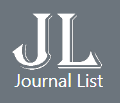Achieving the Objective of Interest-Free Economy: Challenges and Prospects
Abstract
Achieving the objective of the interest-free economy is critical for Islamic countries because interest is categorically prohibited in Islam. However, this objective has proved elusive partly because Islamic countries have to work within the capitalistic framework which crucially depends on interest to equilibrate debt and credit. Forces of globalization have made it hard for a country to exist in isolation in a world dominated by the capitalistic system. In this study, we have found that the legislative measures undertaken in Iran and Pakistan to outlaw Riba have not proved effective and have also opened backdoor to Riba . We have argued that a vibrant growth in the Islamic financial system is not enough per se unless some of the instruments at the disposal of Islamic financial institutions (IFIs) such as Murabaha and Ijarah are further reviewed to ensure strict compliance with the standards of Shariah. More importantly, the operations of the IFIs have to embody the spirit at the root of injunctions prohibiting Riba . It is argued that some space within the capitalistic system can be expeditiously used probationally such as maintaining zero interest rates and pursuing policy of interest free loans. However, achieving the objective of interest-free economy is not possible unless we develop effective institutions. We also highlighted the critical role of moral commitment to achieve the objective of Riba-free economy. Using data for the OIC countries, we found that the strong commitment at the mass level required to establish the vibrant Islamic economic and financial institutions is lacking.












